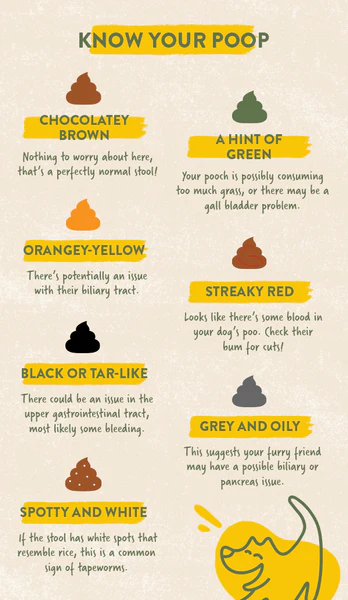As a dog owner, one of the most important aspects of caring for your puppy is understanding their digestive system and the frequency of their bowel movements.
One common question among new puppy owners is whether or not their puppy will poop after every meal. In this article,
I will answer this question in detail, drawing on my personal experience as a dog owner and the knowledge I have gained through research and consultations with veterinarians.

Should puppies poop after every single meal?
In short, puppies typically need to poop after every meal, especially when they are very young. This is because their digestive systems are still developing and they cannot hold their poop for very long.
As they grow older and their digestive system becomes more mature, they may be able to hold their poop for longer periods of time.
However, it’s always a good idea to take them outside or to their designated potty area after meals to help establish a routine and prevent accidents inside the house.
What regular puppy poop should look like
Regular puppy poop should have a brown color and a firm, well-formed consistency. If the poop is too hard or too soft, it could indicate potential health problems such as dehydration or diarrhea.
Any abnormal colors such as black or dark red could indicate bleeding, while green or yellow may indicate digestive issues. Seeking veterinary attention is important if there are any persistent abnormalities in a puppy’s poop.

How long should puppies poop after every meal?
The time it takes for a puppy to poop after every meal can vary, but typically it is within 15-30 minutes after eating.
However, each puppy is different, so it’s important to pay attention to their individual behavior and schedule.
As they get older, they may be able to hold their poop for longer periods of time. It’s important to establish a consistent feeding and potty routine to help them develop good habits and prevent accidents inside the house.
Why do puppies poop after eating?
One reason puppies may poop after eating is that it is a natural bodily function. Just like humans, dogs need to eliminate waste from their bodies regularly to maintain their overall health.
Another reason is that the digestive system of puppies is still developing, which can make them more prone to bowel movements after eating.
Additionally, the food your puppy eats can affect their bowel movements, with certain types of food causing more frequent or urgent bowel movements than others.
I was worried about this too…
When I first brought my puppy home, I was excited but also nervous about taking care of him properly.
One of the things I quickly learned was that he did tend to poop after every meal. At first, I was worried that this was abnormal, but after doing some research and talking to my vet, I learned that it was perfectly normal for puppies to poop after eating.
In fact, it was a sign that his digestive system was working properly and that he was getting enough food and water.
What should I do if my puppy is not pooping after eating?
If your puppy is not pooping after eating, it may be a sign that something is wrong.
There are a few things you can try to help encourage your puppy to have a bowel movement, such as taking them for a walk or giving them a gentle belly rub.
You can also try feeding them a different type of food or increasing their water intake.
However, if your puppy is not pooping for an extended period of time, or if they are showing signs of distress, such as lethargy or vomiting, it is important to take them to the vet as soon as possible.
What factors can affect a puppy’s bowel movements?
There are several factors that can affect a puppy’s bowel movements. One of the most important is their diet.
Feeding your puppy a high-quality, nutritionally balanced diet can help regulate their digestive system and promote healthy bowel movements.
However, certain types of food, such as those that are high in fat or fiber, can also cause more frequent bowel movements or diarrhea.
Other factors that can affect a puppy’s bowel movements include their age, size, and level of physical activity.
Last thoughts
In conclusion, puppies do tend to poop after eating, and this is perfectly normal and healthy.
As a dog owner, it is important to understand your puppy’s digestive system and bowel habits to ensure their overall health and wellbeing.
If you have any concerns or questions about your puppy’s bowel movements, don’t hesitate to talk to your vet for advice and guidance.
With proper care and attention, you can help your puppy grow into a happy and healthy adult dog.
